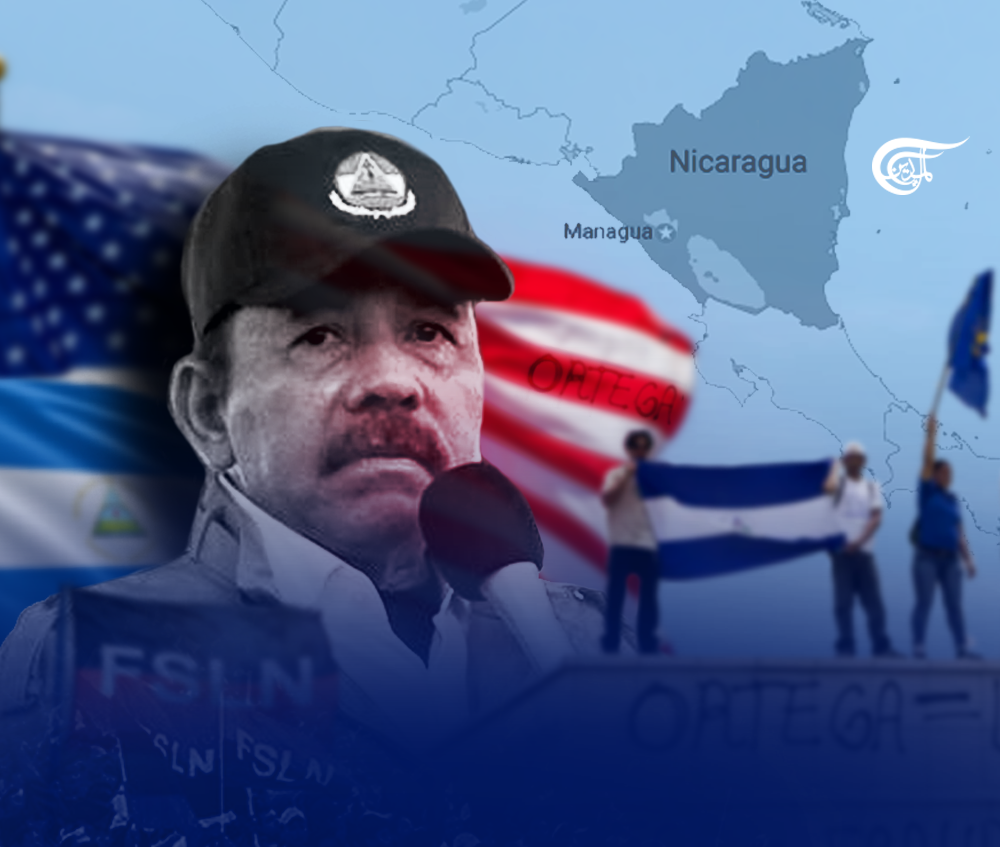The US Fourth Generation War against Nicaragua
The US aims to punish the Nicaraguan population for remaining faithful to the sovereign and revolutionary principles of Sandinismo.
On Sunday, November 7 of this year, a crucial general election will be held in Nicaragua. Nicaraguans will elect a new President, new members of the National Assembly, and 20 of the 120 representatives of PARLACEN, the Central American Parliament. The electoral projections would provide a clear victory for the Sandinista National Liberation Front, which could widely surpass the state's total votes, despite the united front of the entire opposition, if an electoral coalition is to be organized to confront the Ortega-Murillo alliance.
In these circumstances, the United States has set its enormous destabilizing and intervening machine into motion with two main objectives: first, to alter the electoral result favorable to Sandinismo and second, to delegitimize the victory of the FSLN and maintain a mere pretext to continue with the illegal and unilateral program of sanctions, in order to punish the Nicaraguan population for remaining faithful to the sovereign and revolutionary principles of Sandinismo.
With the current political trends sweeping the American continent, the new strategists of the old Monroe Doctrine need a victory to restore some of the influence lost in the last electoral processes in Bolivia, Chile and Peru. It should also be mentioned that the State Department will not be very happy with the social mobilizations which are still taking place in Colombia and threaten to overthrow the cornerstone of the empire in Latin America.
The pretext used this time to discredit the ongoing electoral process is the arrest of several alleged opposition politicians. First was the case of Cristiana Chamorro, daughter of Violeta Barrios de Chamorro, the former terrible president in office between 1990 and 1997, at the head of the pro-US National Opposition Union.
Cristiana is the head of a foundation that bears her mother's name – the "Violeta Barrios de Chamorro Foundation for Reconciliation and Democracy", has not appeared on the Business Master File in a number of months. It may have merged with another organization or ceased operations – which have been receiving substantial USAID donations in recent years. She has been detained for money laundering, property fraud and misappropriation of assets; she does not belong to any political party and neither is she a candidate for presidency, since the electoral registrations have not yet been formalized, and it will not be until July 28 when the official registration of candidates will take place. However, her foundation does have a long trajectory of attempts to destabilize the Central American country through the purchase of journalists and media, with money coming from the North American enemy along with the dissemination of hoaxes, lies and journalistic toxicity.
The international protests began when its promoters decided to dissolve the foundation in application of the Foreign Agents Law, which obliged to register those organizations that intended to continue receiving foreign funds as something to be exposed as partial and obedient to their financers before the public, leaving their credibility in question. Ironically, the criticism on the protests came from governments with similar and even more restrictive laws than the Nicaraguan one, as in the case of the U.S. government.
To the first relevant arrests, must be added the name of Arturo Cruz, former ambassador of the Sandinista government in Washington; Juan Sebastián Chamorro, former vice-minister of Finance and Félix Maradiaga. The four are treated by the international press as "presidential pre-candidates," although this term does not exist in the country's legal system. None of them have electoral projections close to 10% of the voting intention, so the degree of concern that these "pre-candidates" may cause to Sandinismo in the November elections is practically null, and that is something that everyone is well aware of. They are not the rivals of Ortega, not by far, with a voting intention close to 60%.
Their role is different. They are trying to encourage their US and European bosses to increase pressure on the Sandinista government, justifying the international sanctions that hinder the quality of life of their fellow citizens, while encouraging their deepening aggravation – a crime of treason punishable by Nicaraguan law. These are neither false nor trivial accusations. The arrests were not solely the reason behind provoking the imposition of more unilateral coercive measures by the US, but rather Washington had been publicly demanding the measures on more than one occasion, as can be verified by consulting the digital newspaper's archives.
It is expected that behind this framework, there is a new escalation hidden, similar to the one initiated in April 2018, coordinated by Washington and aimed at bringing down the Sandinista government following the November elections. This was an operation similar to the one Evo Morales suffered from in Bolivia in 2019, with only some differences. They are aware that the will of the Nicaraguan people and the adherence to the values of their homeland revolution are unbreakable and go hand in hand with democratic expression. In Sandinismo's strength dwells their fear and desperation.

 Juanlu González
Juanlu González
 5 Min Read
5 Min Read








